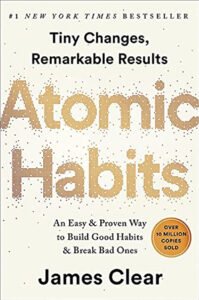|
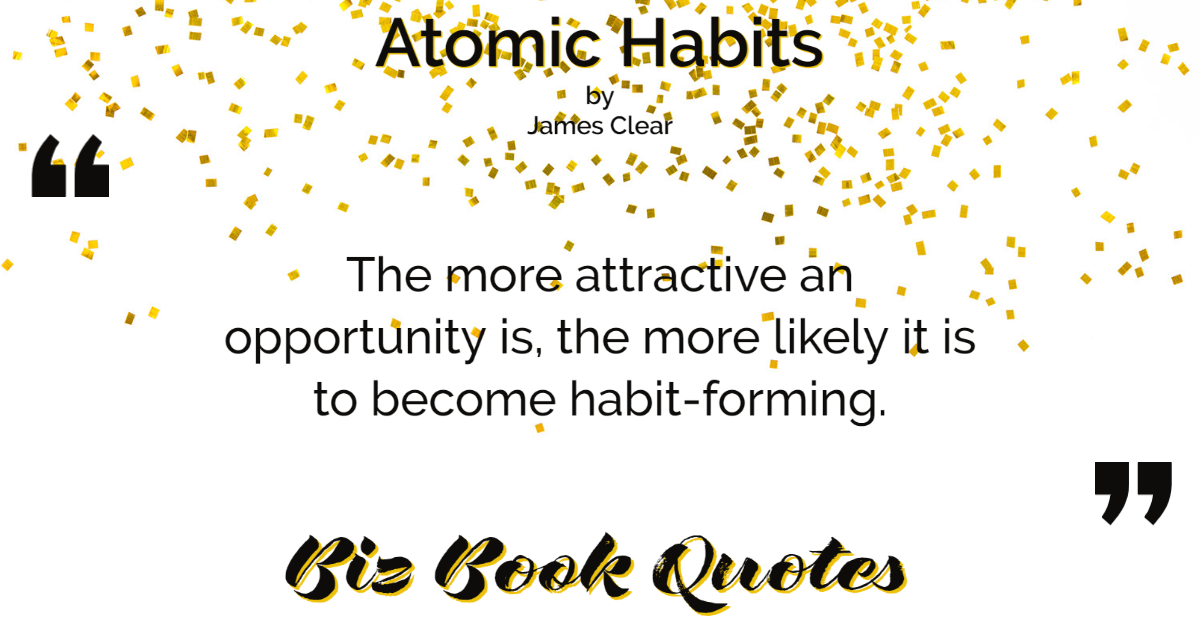
|
Atomic Habits:
The more attractive an opportunity is, the more likely it is to become habit-forming.
|
104 |
|
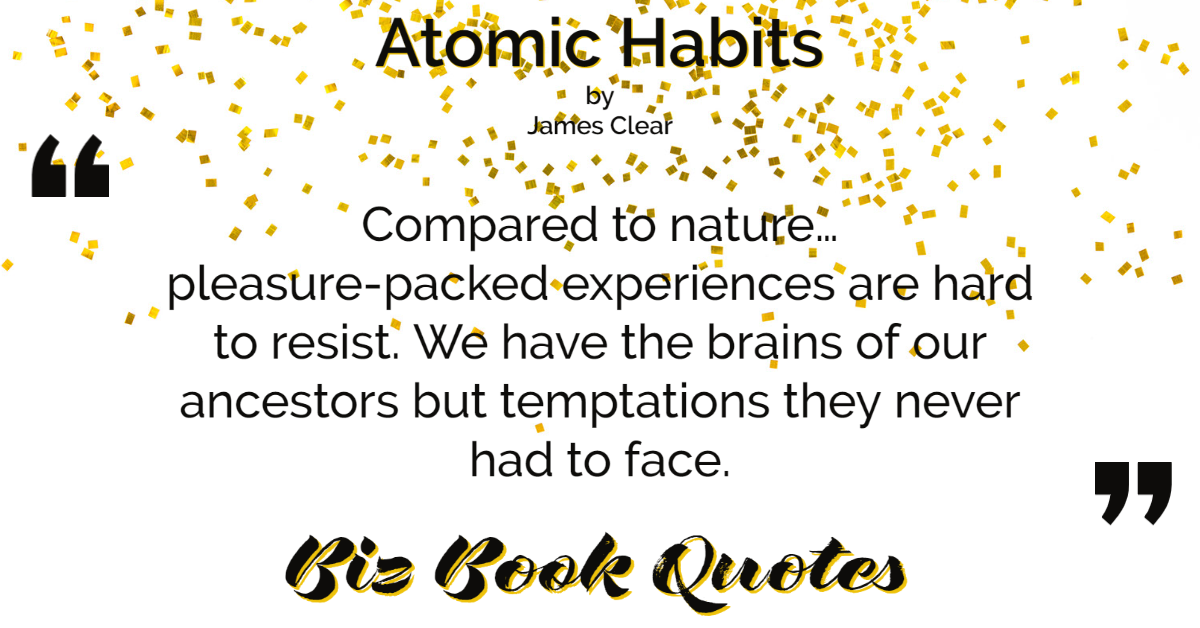
|
Atomic Habits:
Compared to nature… pleasure-packed experiences are hard to resist. We have the brains of our ancestors but temptations they never had to face.
|
104 |
|
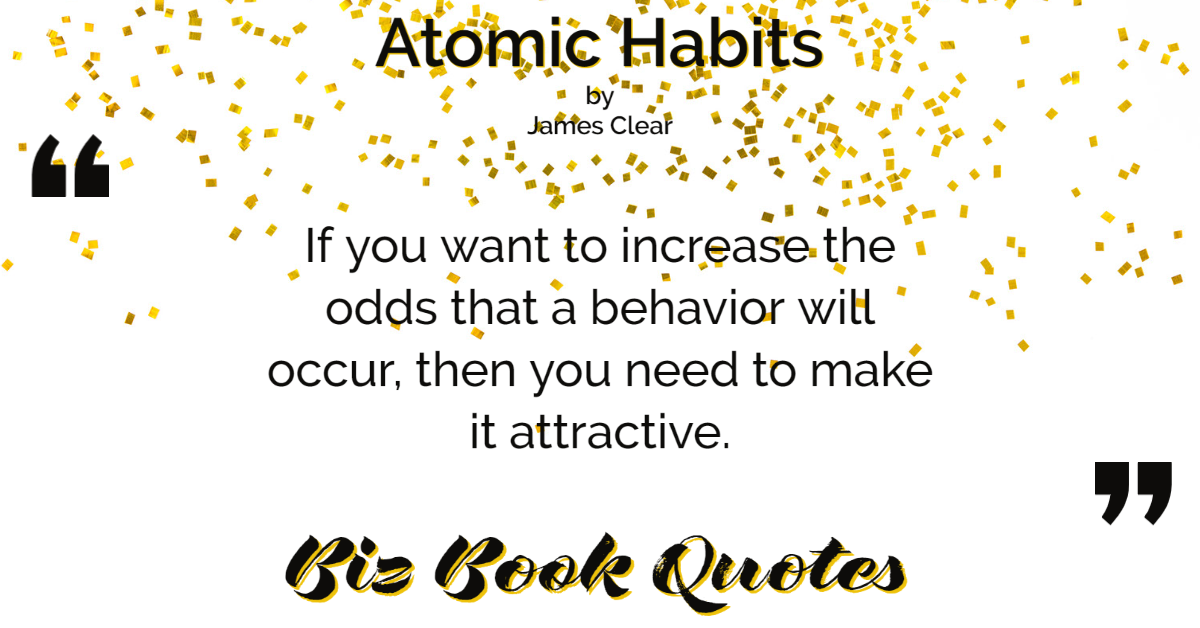
|
Atomic Habits:
If you want to increase the odds that a behavior will occur, then you need to make it attractive.
|
104 |
|
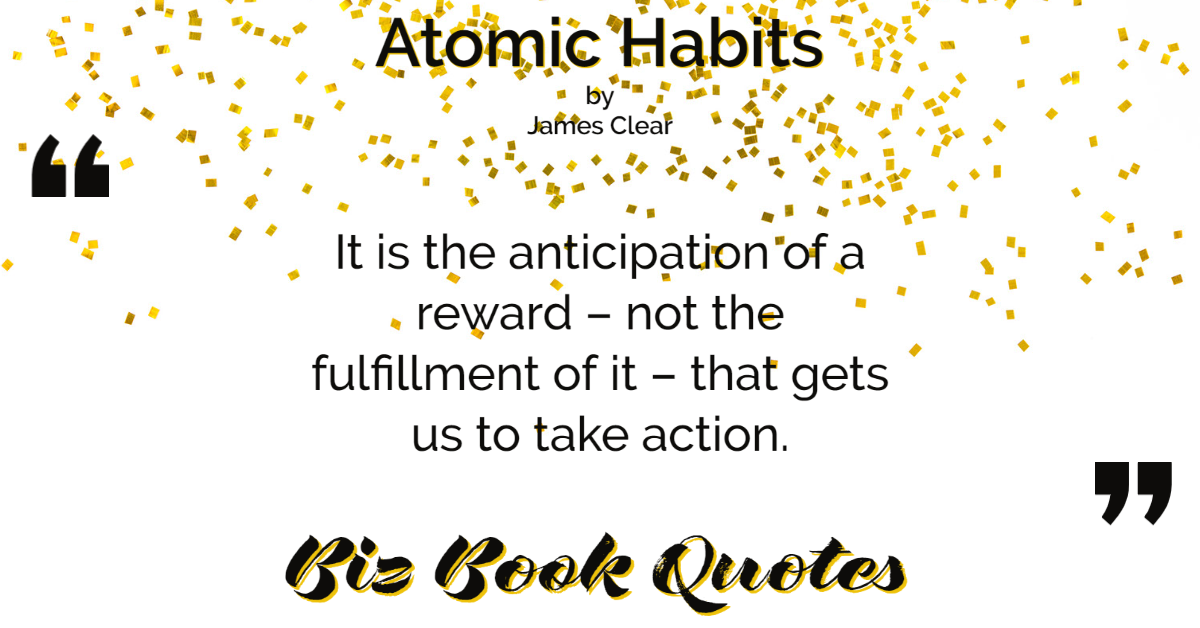
|
Atomic Habits:
It is the anticipation of a reward – not the fulfillment of it – that gets us to take action.
|
106 |
|
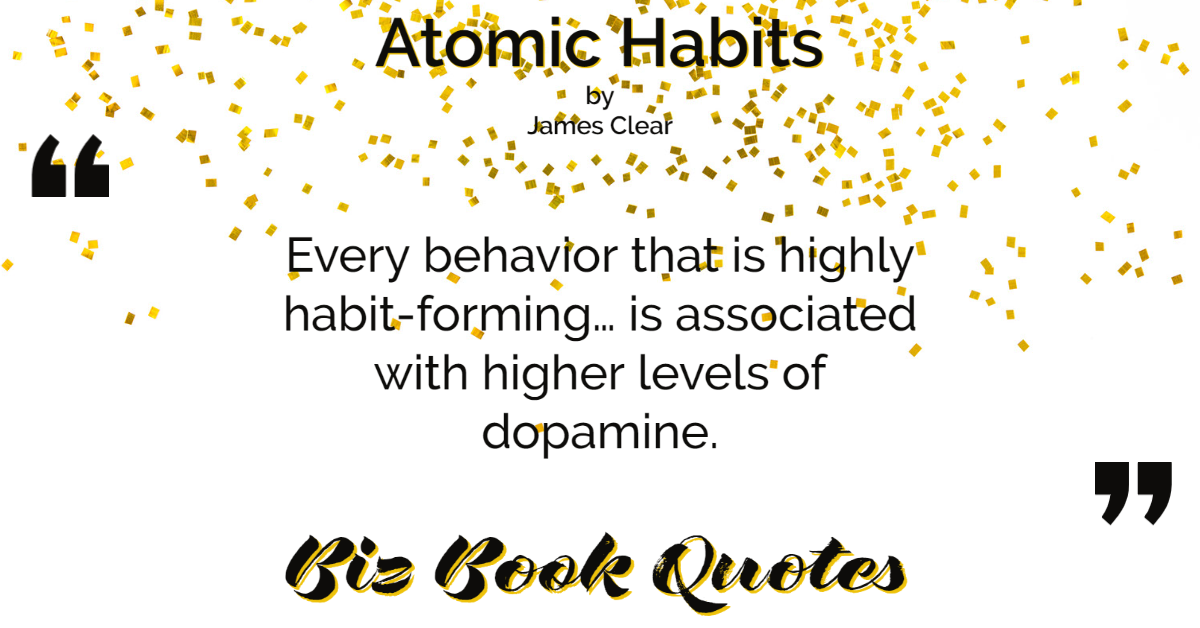
|
Atomic Habits:
Every behavior that is highly habit-forming… is associated with higher levels of dopamine.
|
106 |
|
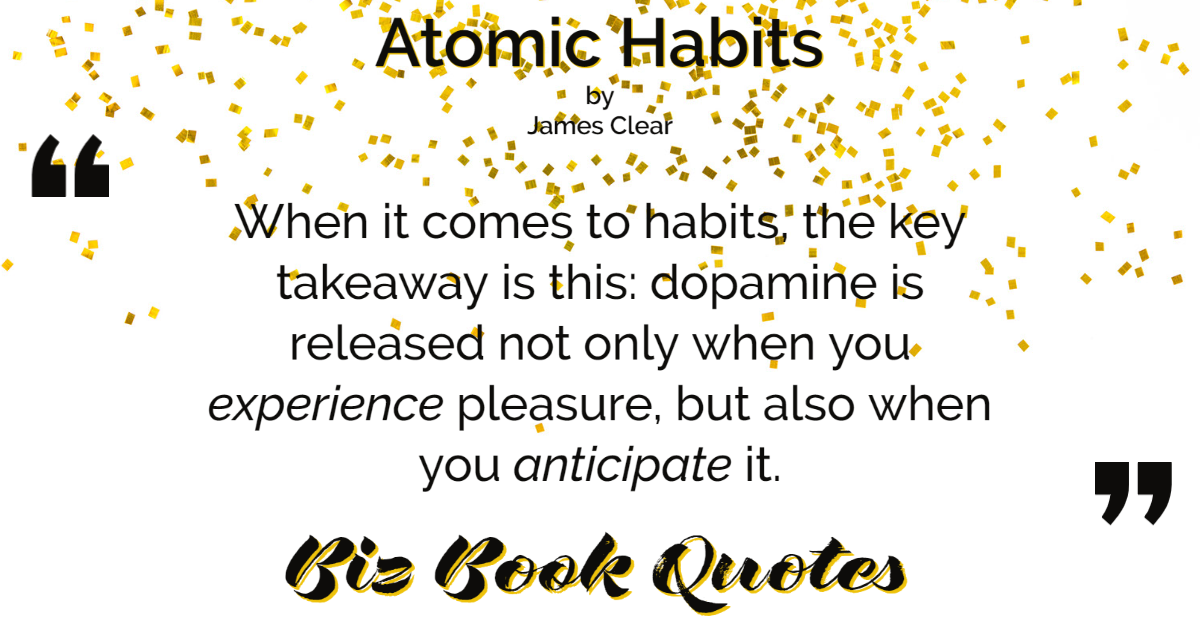
|
Atomic Habits:
When it comes to habits, the key takeaway is this: dopamine is released not only when you experience pleasure, but also when you anticipate it.
|
106 |
|
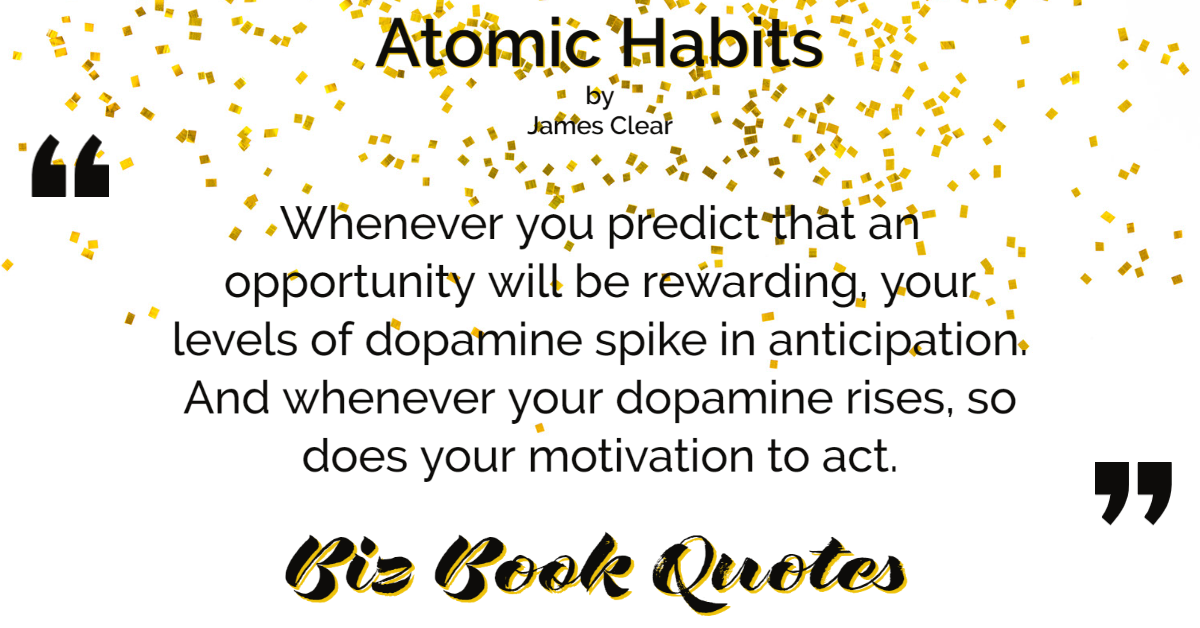
|
Atomic Habits:
Whenever you predict that an opportunity will be rewarding, your levels of dopamine spike in anticipation. And whenever your dopamine rises, so does your motivation to act.
|
106 |
|
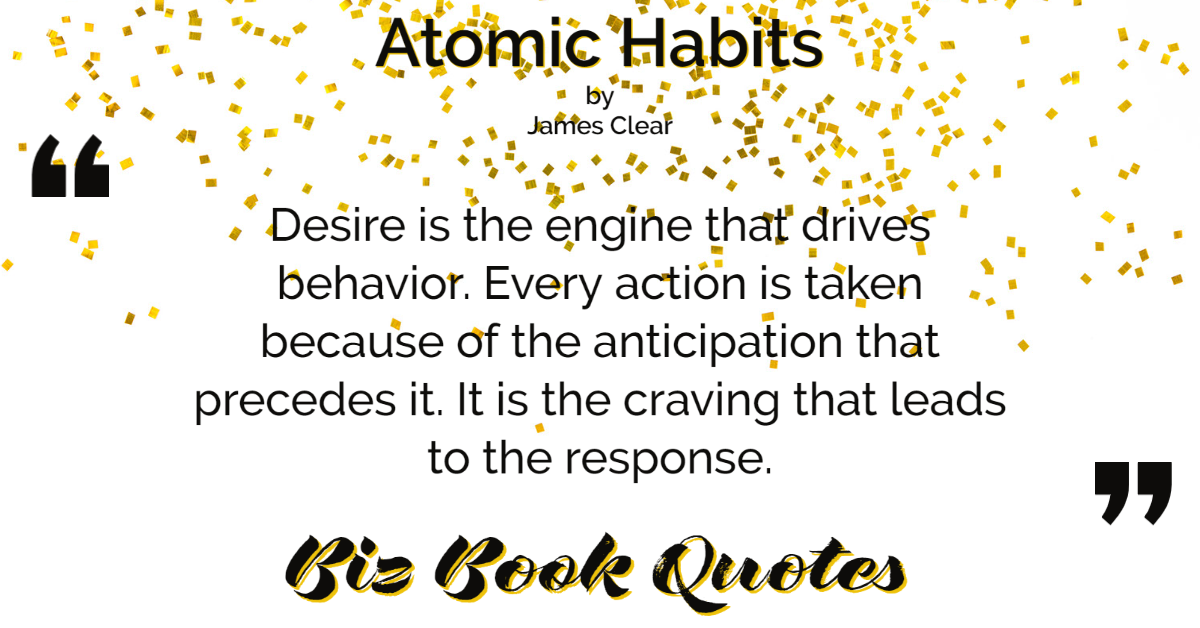
|
Atomic Habits:
Desire is the engine that drives behavior. Every action is taken because of the anticipation that precedes it. It is the craving that leads to the response.
|
108 |
|
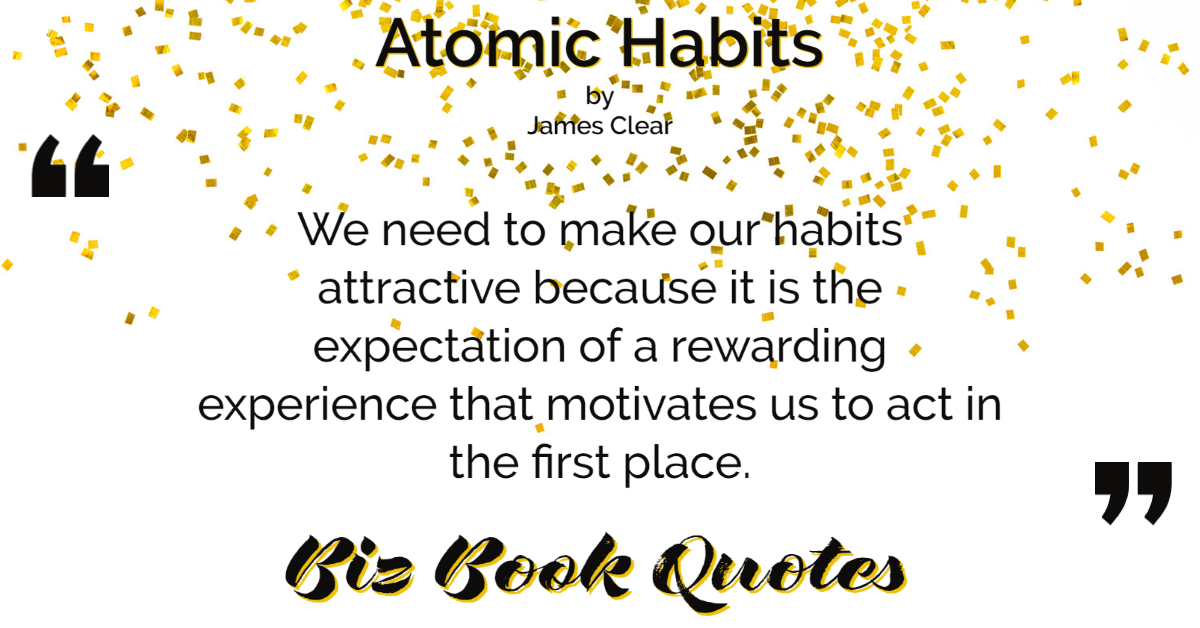
|
Atomic Habits:
We need to make our habits attractive because it is the expectation of a rewarding experience that motivates us to act in the first place.
|
108 |
|

|
Atomic Habits:
Temptation bundling works by linking an action you want to do with an action you need to do.
|
109 |
